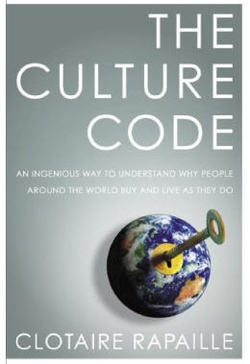Tips voor marktonderzoek in Oost-Europa
Wij bieden marktonderzoek voor Oost-Europa. Hier zijn enkele tips.
Wij bieden marktonderzoek voor Oost-Europa. Hier zijn enkele tips.
Door Dmitry Shimanov, algemeen directeur van MAART Raadpleeg onderzoeksbureau
Also accessible on SIS Worldwide Intelligence Library. One of the common mistakes existing in business circles is that marketing research is necessary only for large companies. As a matter of fact, small businesses require it as much as transnational corporations.
Why? Here are four reasons.
First, in order to expand market share, small companies need to find a suitable niche. This is why market analysis and SWOT analysis of competitors will be required. Second, small companies deal with extreme pressure of competition. They have to keep hold of every client, and to do so, complete information on consumers is necessary (from social and demographic features to psychographic portrait).
 As part of our series of marketing book reviews, we have recently reviewed Jon Steel’s “Truth, Lies and Advertising: the Art of Account Planning.” While focused on advertising, the book’s content can feasibly be applied to other branches of marketing services. In particular, we were eager to read its perspective on market research in Advertising campaigns.
As part of our series of marketing book reviews, we have recently reviewed Jon Steel’s “Truth, Lies and Advertising: the Art of Account Planning.” While focused on advertising, the book’s content can feasibly be applied to other branches of marketing services. In particular, we were eager to read its perspective on market research in Advertising campaigns.
Steel’s goal is to propose a new model of advertising based on the complexity of people and their emotions. The model incorporates a partnership of stakeholders in an advertising campaign:
The fragrance industry worldwide rolls to the beat of its own drum in terms of marketing and consumer purchases.
New Internet Worlds are emerging online where users make a replica of themselves to live out life-like situations.
We reviewed a few chapters in Malcolm Gladwell’s best-seller “Blink”. Why? Thin Slicing reveals insights into human behavior.
The China Institute of Competitive Intelligence (CICI) is promoting its 4th Annual Competitive Intelligence International Annual Conference from November 13-15 in Shanghai. Last year, nearly 150 people attended. The China Institute of Competitive Intelligence claims that CI in China is on the rise.
 Last year, New York University (NYU) announced an agreement with the Emirate of Abu Dhabi to build NYU Abu Dhabi. The research university, with a complete integration of a liberal arts and science college, will be the “first world-class, liberal arts university in the Middle East”.
Last year, New York University (NYU) announced an agreement with the Emirate of Abu Dhabi to build NYU Abu Dhabi. The research university, with a complete integration of a liberal arts and science college, will be the “first world-class, liberal arts university in the Middle East”.
NYU Abu Dhabi is still underway, with the first formal academic year planned to start on the fall of 2010. NYUAD, which offer NYU B.A. and B.S. degrees, as well as specialized graduate programs, is projected to enroll at least 2,000 undergraduate students and approximately 800 graduate students. The students will be admitted from all over the world, especially the broad Middle East and South Asia.
 Cultuur kan eenvoudigweg worden gedefinieerd als een manier van leven van mensen in een bepaalde samenleving. In brede zin is cultuur een configuratie van aangeleerd gedrag waarvan de componenten worden gedeeld en overgedragen door leden van een bepaalde gemeenschap. Mensen met dezelfde culturele achtergrond hebben gemeenschappelijke kenmerken, ideologie, normen, overtuigingen, waardesystemen, consumptiepatronen, spreken dezelfde taal en gebruiken dezelfde valuta. Verschillende culturen vertonen een enorm spectrum aan diversiteit in hoe een samenleving een product, idee of dienst ervaart, evenals wat haar leden verwachten.
Cultuur kan eenvoudigweg worden gedefinieerd als een manier van leven van mensen in een bepaalde samenleving. In brede zin is cultuur een configuratie van aangeleerd gedrag waarvan de componenten worden gedeeld en overgedragen door leden van een bepaalde gemeenschap. Mensen met dezelfde culturele achtergrond hebben gemeenschappelijke kenmerken, ideologie, normen, overtuigingen, waardesystemen, consumptiepatronen, spreken dezelfde taal en gebruiken dezelfde valuta. Verschillende culturen vertonen een enorm spectrum aan diversiteit in hoe een samenleving een product, idee of dienst ervaart, evenals wat haar leden verwachten.
 As part of our series of marketing-related books, we have reviewed Clotaire Rappaille’s book “The Culture Code.” In marketing research, Rappaille is known for his style and unique theories on human behavior. He is known for his rejection of the traditional focus group; instead he proposes a 3-hour focus group in which he does unstructured probing of obscure questions to elicit deeply rooted emotions and attitudes. In the book, he talks about how a culture has a code for every concept, and that it is the job of marketers to decode those meanings.
As part of our series of marketing-related books, we have reviewed Clotaire Rappaille’s book “The Culture Code.” In marketing research, Rappaille is known for his style and unique theories on human behavior. He is known for his rejection of the traditional focus group; instead he proposes a 3-hour focus group in which he does unstructured probing of obscure questions to elicit deeply rooted emotions and attitudes. In the book, he talks about how a culture has a code for every concept, and that it is the job of marketers to decode those meanings.
Rapaille lays out 5 central principles that belie his marketing research approach.
In de juni-editie van Gulf Business gaf de heer Welf Ebeling, EVP en COO van de “Leading Hotels of the World” aan dat hoewel het aantal 5-sterrenhotels in Dubai explodeert, de volgende golf budgethotels zijn.
Discover how Carrefour expands in Emerging Markets.
Een bedrijf starten in een nieuw land is een uitdaging, zoals overal. Als buitenlander moet u, als u van plan bent om een bedrijf op te zetten in Turkije, eerst de Foreign Direct Investment Law (nr. 4875) bekijken en u ermee vertrouwd maken. Deze wet werd in 2003 in Turkije ingevoerd. De belangrijkste principes die door deze wet worden geïntroduceerd, zijn die van non-discriminatie en gelijke behandeling, aangezien ze het wettelijke kader van de liberale investeringsomgeving in Turkije vormen.
Volgens de Foreign Direct Investment Law zijn de voorwaarden en verplichtingen voor het oprichten van een bedrijf met buitenlands kapitaal gelijk aan die voor lokale bedrijven. Bijgevolg zijn de verschillende verplichte vergunningen in het verleden bij het oprichten van een bedrijf met buitenlands kapitaal nu geëlimineerd. Bedrijven die zijn opgericht met buitenlands kapitaal, zoals beschouwd door de regels van het Turkse Wetboek van Koophandel, worden beschouwd als Turkse bedrijven. Daarom zijn alle taken en verantwoordelijkheden identiek, ongeacht de aard van de kapitaalcreatie van het bedrijf.
Bovendien zijn er binnen de nieuwe FDI-wet geen regels die Turkse deelname in het kapitaal of het beheer van een bedrijf met buitenlands kapitaal vereisen. Een bedrijf kan worden opgericht met 100% buitenlands kapitaal en bijna alle sectoren staan open voor buitenlands kapitaal. De procedures voor het opzetten van bedrijven zijn ook in grote mate vereenvoudigd. Nu kan de registratie en oprichting van een bedrijf in Turkije met de efficiënte procedures in slechts één dag worden voltooid. Bedrijven moeten een standaardformulier op één locatie indienen en hoeven geen aanvragen bij meerdere instanties in te dienen voor goedkeuringen. Ook bepaalt de wet dat het niet langer verplicht is om een vennootschap met beperkte aansprakelijkheid of een naamloze vennootschap op te richten. Dit zijn allemaal belangrijke punten waarmee rekening moet worden gehouden door buitenlandse investeerders die van plan zijn om zaken te doen in Turkije.
Qatar heeft een gunstig zakenklimaat.
Aan het einde van het eerste kwartaal van 2008 omvatten islamitische banken 13,4% van de bancaire activa van de VAE, volgens de Global Investment Bank van Koeweit. De sector is in beweging met een sterke groei, een stijgend aandeel in de totale bancaire markt, nieuwe producten en sterke deposito's. Volgens dit rapport introduceert de sector innovatieve producten om rekening te houden met nieuwe marktbehoeften. Tot deze producten behoren Ijarah en Murabaha.
Veel banken in het Midden-Oosten hebben al een islamitische bankeenheid of zetten bestaande niet-islamitische dochterondernemingen zelfs om in islamitische. Het rapport vermeldt verder dat de samengestelde jaarlijkse groei van deposito's bij islamitische banken de afgelopen 5 jaar met 44% is gestegen.
Een eerder rapport van SIS International geeft aan dat Islamic Banking een belangrijke markt van bankklanten heeft aangetrokken, vermogende particulieren (HNWI's), met name in de Golf. Hoewel Bahrein traditioneel bekend staat als een hub voor Islamic Banking, maken banken in de VAE en Qatar inbreuken op de markt door dochterondernemingen voor Islamic Financial Services op te richten.